Healthy Snacks & Meals: Neighbor Voice = Better Choice
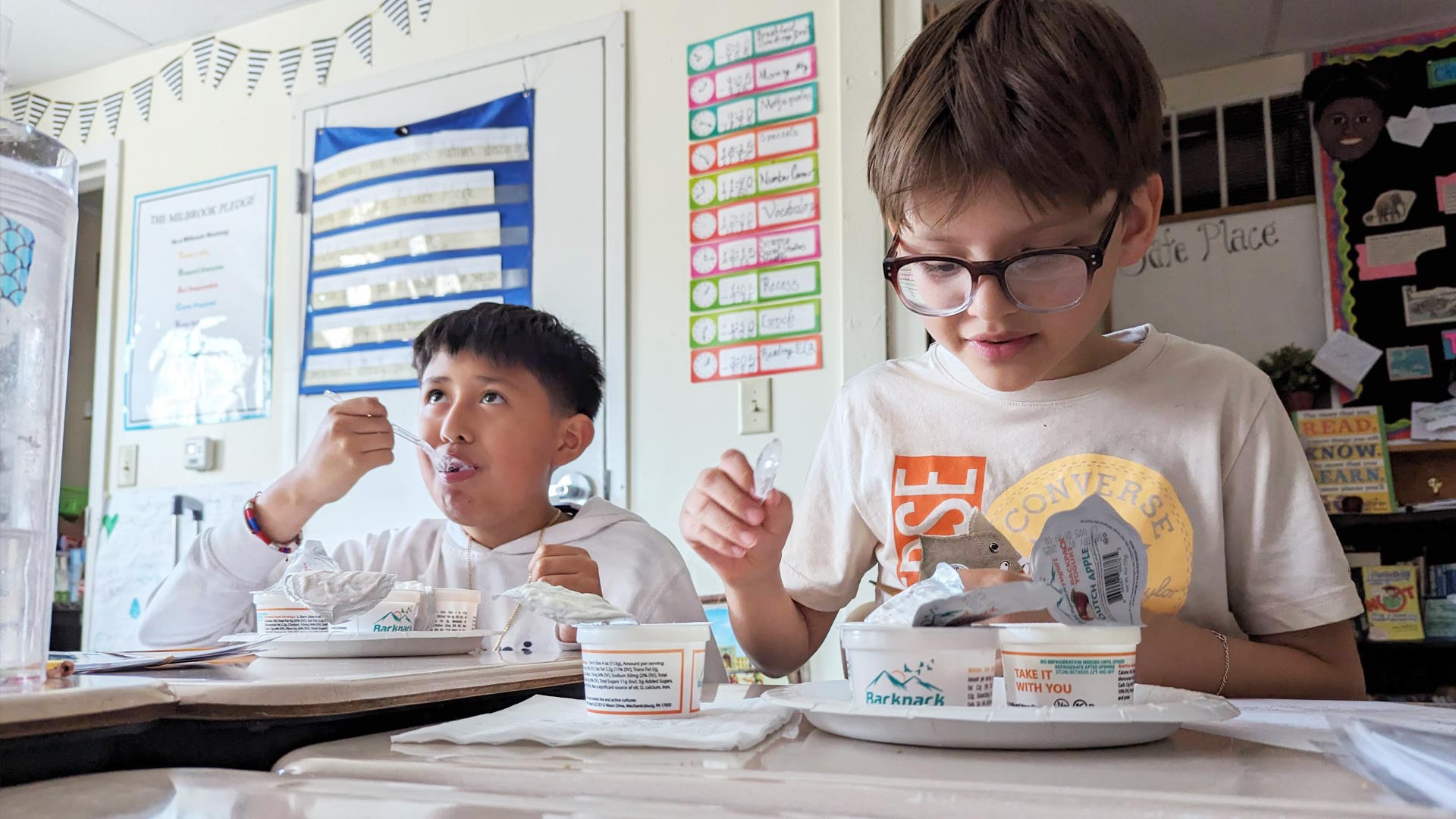
“This vanilla yogurt tastes JUST LIKE ICE CREAM!!!”
Everyone appreciates the ability to simply “grab and go” during busy times—convenient healthy snacks on the way to a Saturday morning soccer game, or a ready-to-eat meal on a busy Wednesday evening.
And while there are lots of convenient options, most ready-to-eat snacks and meals are not healthy. These items tend to be packed with preservatives, have high levels of sodium and/or added sugar, and tend to fall into the red (or choose rarely) category of the Supporting Wellness At Pantries food assessment system. Watch the video
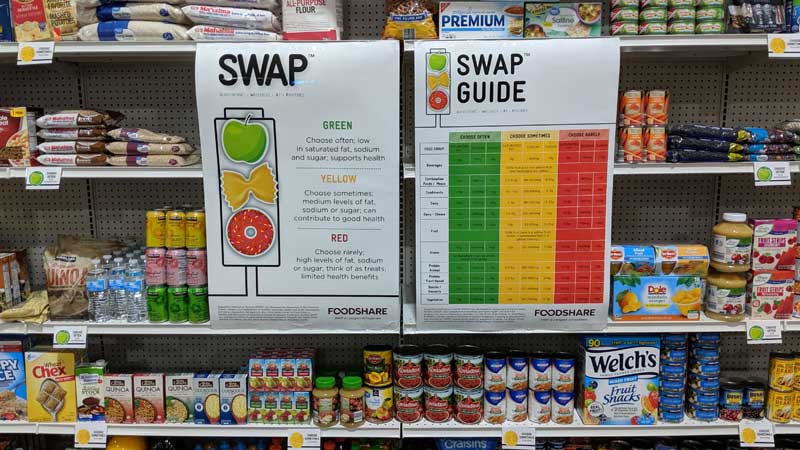
And while MFB’s Nutritionist Kate Long is proud of the positive changes she’s helped bring to the food bank’s overall menu—in FY23, 68% of food offerings were SWAP green—she knows how important these specific types of foods are to families.
“People want convenient foods that are healthy, but what is on the market a lot of times is much more expensive, and people make trade-offs,“ Kate said. “The same thing is true for food banks, but with an added layer of challenge—finding healthy food that is affordable, and available consistently.”
And just like when we’re assessing any other MFB initiative, we wanted to hear from the true subject matter experts—our neighbors who will be eating these snacks.
“If you don’t like these veggie chips, then you must not have taste buds!”
Into, and Out of the Mouths of Babes
Throughout May, at several schools, kids had the opportunity to take the tastiest of tests to help guide our acquisition choices, so that food-insecure Marylanders have better choices while shopping local pantries.
Each child had the chance to rate the look, smell, and taste of one savory crunchy snack (Terra or PopChips), one sweet crunchy (Annie’s Bunny Grahams), four bars (different flavors of Lara Bars), and four flavors of shelf-stable yogurt, all while playing guessing games about the snack’s ingredients.
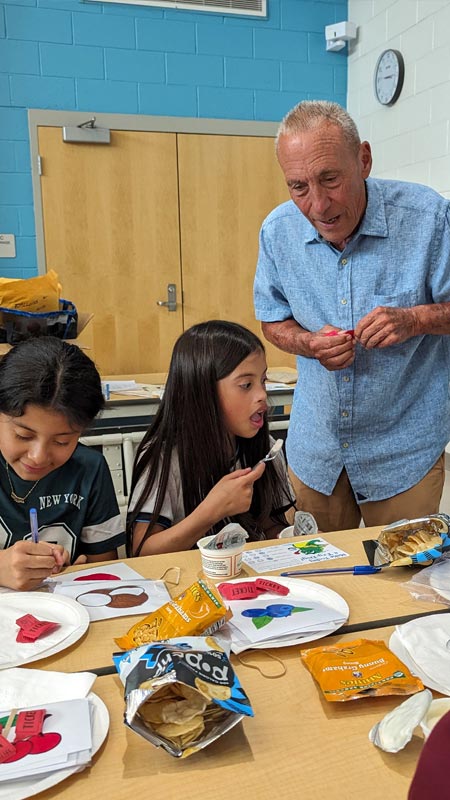
“I feel strongly that we need to make sure that when school ends, children still have access to food—whether it’s breakfasts, lunches, dinners, or these snacks. The thought of kids not having that is really what made me get in my car and come support this event.”
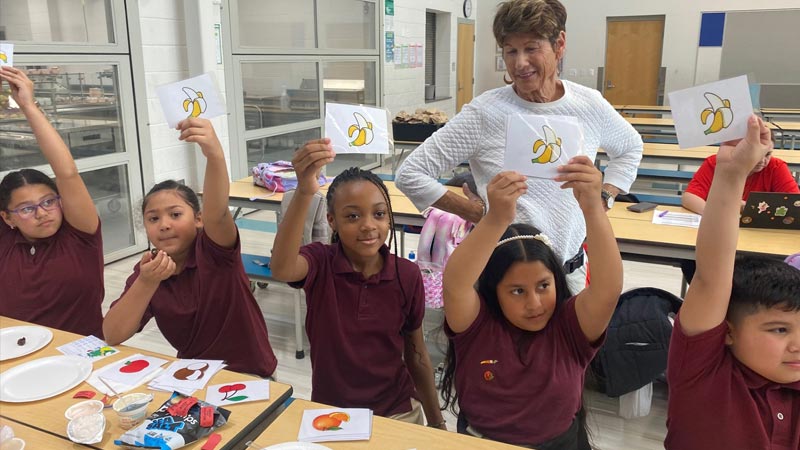
The More You Know
With a menu full of neighbor-guided, healthier meals and snacks, we want to make it as easy as possible for busy families to choose them when visiting partners.
“We’re not just sending these products to food pantries aimlessly, we’re offering our expertise and real guidance on how to make neighbors aware of the new products—through communication and display—and ask our partners to continue soliciting that all-important feedback from neighbors,” said Kate.
And at the end of the day, we want to know that neighbors actually like these healthier options, so local pantry coordinators will know to order them and keep in stock.
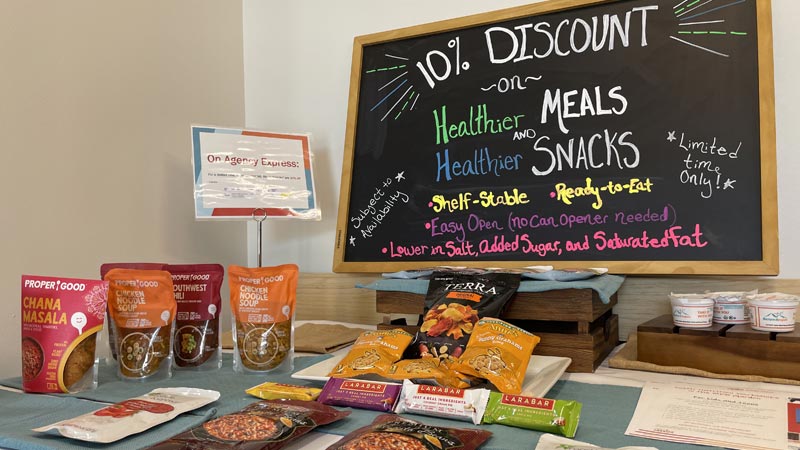
Bunny or Not Bunny? Graham is the Question
So what does this process actually look like? Well, let’s take the example of graham crackers.
Graham crackers can be classified as SWAP red or yellow, depending on the added sugar content of the brand chosen—such as the Annie’s Bunny Grahams that were part of our school taste tests. So we want to bring in ones that are consistently healthy, but food-insecure neighbors should have the same confidence that familiar products will be available when visiting a pantry as they would a grocery store.
That why our sourcing team is such an important part of this initiative. They have the relationships and expertise with providers to help realize this important goal.
“Our existing relationships are great, and help us acquire lots of nutritious foods for our neighbors, but we’re always looking for new connections to food manufacturers and providers, especially those who have product that meet our needs for healthier snacks and prepared meals.”
Statistics 101
And to help determine the long-term vision for this initiative, our research team, led by Daniel Sturm will look at the ordering patterns of participating partners to see what adjustments we need to make to spur wider-spread participation throughout the network.
“We’re operating under the hypothesis that the more resources our partners have, they more likely they are to both order these healthier options and help neighbors become more aware of the benefits of choosing them.”

About The Author
Ben Gross
For more than 30 years, Ben has been helping organizations raise awareness and inspire action by creating compelling narratives. And since 2018, Ben has been the Maryland Food Bank's Staff Writer, elevating the voices of food-insecure neighbors to further the Maryland Food Bank's mission of feeding people, strengthening communities, and ending hunger for more Marylanders.
We Need Your Help
Programs, campaigns, and educational outreach at the Maryland Food Bank has always relied on the philanthropic support of charitable individuals like you.
Much like our food distribution efforts, outreach activities at the Maryland Food Bank rely on generous donations of money and time.
We hope you’ll consider a contribution.







